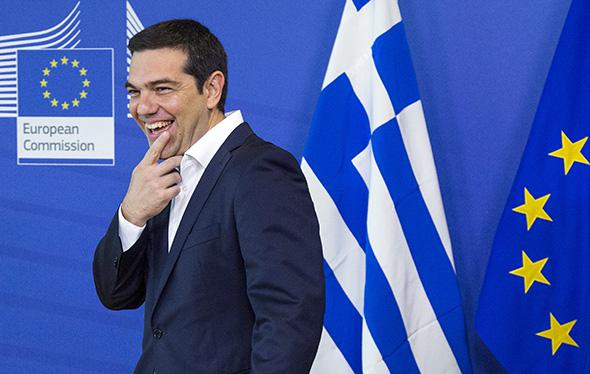Default, bankruptcy, Grexit, crash: If you feel you’ve read before that these things were about to happen in Greece, that’s because you have. Every debate about Greece’s financial crisis deteriorates rapidly into a discussion of deadlines: repayments, refinancings, meetings of the International Monetary Fund or the European Central Bank. Until now these deadlines have always resulted in further delay. Another one is coming on June 30. That’s when Greece owes $1.7 billion more it doesn’t have.
If you’ve tried to keep up with these stories, you may become lost in economic jargon. Greece, which can no longer borrow money on capital markets, is now wholly dependent on international and European financial institutions. To ensure that they are not throwing good money after bad, these institutions have placed restrictions on Greek government spending. Greece, in turn, has sought to dodge these restrictions and negate agreements, exploiting the rules in mind-boggling ways, borrowing from one account to pay back another. It takes a special head for numbers to follow the saga.
And yet—the numbers don’t really represent what is at stake. The crisis in Greece is not, at base, an economic story: It is a political story, a story about the promises that governments make to their citizens and about the ability of any state to guarantee a particular standard of living to its citizens, not only in Greece but all over Europe.
The current Greek government was elected on a completely false premise: that Greece could continue to run one of the most expensive pension systems and one of the largest bureaucracies in Europe—and that other countries would pay for it. Not all Greeks believe this fairy tale, but there were enough of them to elect a governing coalition of the far left and far right, both of which have publicly stated that they will not abide by the rules set by financial institutions, that they don’t like the European Union, which has been bailing them out for years, and that they might just prefer an alliance with Russia instead.
But the other governments in Europe also have voters, many of whom have been listening to the opposite message: that governments have to live within their means. Famously this is a German mantra, but it’s a mistake to imagine that the battle in Europe is some kind of titanic struggle between stern Germany and feckless Greece. Cartoonists might like the idea of an arm-wrestling match between Angela Merkel, the German chancellor, and Alexis Tsipras, the Greek prime minister, but plenty of other countries have a political stake in this game.
After the financial crash of 2009, the IMF also bailed out the Irish economy. But Ireland stuck to the plan, did what was agreed, and by 2014 was the fastest-growing economy in Europe. Latvia went through an economic crisis every bit as deep as the one in Greece after 2009—losing more than a fifth of its gross domestic product—but it, too, recovered and began to grow. Why should Irish or Latvian voters feel sympathy for Greece’s demand to take another path at their expense?
Meanwhile, all across the continent—in Spain, France, the Netherlands—populist parties of both the right and the left, some very similar to Greece’s ruling party, Syriza, threaten governments that are trying to maintain fiscal balance, stay inside the European Union, and play by existing rules. If Greece is allowed to change those rules, many European politicians will have a much tougher time winning their next elections. For some of those politicians, the wrong Greek scenario could mean their own political demise.
Miracles are still possible: At the last possible minute, Tsipras sounds willing to make some concessions. Perhaps he has finally worked out that blackmail really and truly is not going to work. Just watch us default, the Greeks have been saying, and see what it will do to you. Or: Be nice to us, or we’ll start doing deals with Russia. But what’s at stake isn’t just Greece: It’s the stability of a dozen European governments, as well as the very notion of fiscal probity. That’s why there are now so many willing to call his bluff, take the risk, let Greece default and see what happens.
